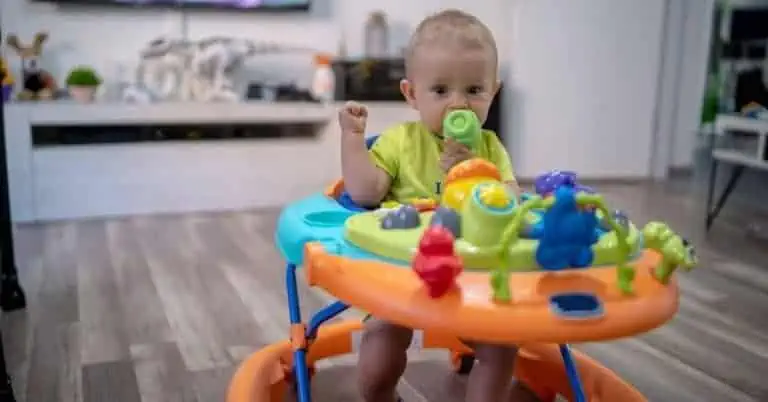14 Old-School Parenting Hacks That Need to Make a Comeback
This post may contain affiliate links. As an Amazon Associate, I earn from qualifying purchases.
Is there one right way to raise a family? Definitely not. There are many opinions and techniques when it comes to parenting. As long as children are thriving and feel loved, there is not one ‘perfect’ way to parent.
Yet, more traditional parenting hacks have been seemingly forgotten in the rush of modern parenting practices. These old-school hacks may sound simple, but they still make total sense and can be incredibly effective in raising children.
Let’s delve into the parenting trends of the 80s, 90s, and beyond—approaches that many aim to reintegrate. These timeless trends encapsulate enduring wisdom and have the potential to enhance modern parenting practices.
1. Reviving Family Dinners

Ah, the good old days when everyone waited for dinner time to gather at the dinner table and shared laughter alongside meals. There are numerous benefits to this family ritual. Sitting down for a meal together allows the entire family to catch up on each other’s lives, share stories, and bond. It also promotes healthy eating habits, as children are more likely to try new foods when their parents enjoy them.
With hectic schedules and technology taking over our lives, having a traditional family dinner every night can be challenging. However, making it a regular occurrence, even once or twice a week, can significantly benefit family dynamics.
2. Simplifying Birthdays

Children’s birthday celebrations have become extravagant events for some parents. A 2017 survey found that parents spend an average of $400 for their child’s birthday party. This budget-busting trend has removed the focus on celebrating the child and replaced it with expensive gifts, elaborate decorations, and over-the-top activities.
Returning to simpler times when birthdays were celebrated with a homemade cake, a few close friends, and outdoor games can be refreshing. It teaches children that special occasions don’t always have to involve materialistic things and encourages them to appreciate the little things in life.
3. Playing Games Together

Whether through board games or video games, the moments spent connecting and exploring something together hold great value for children’s growth, even if they may initially express reluctance. These activities encourage teamwork and problem-solving skills and promote healthy competition. Additionally, it allows for quality family time without the constant distractions of technology.
Carving time out of a family’s busy schedule to play games together, even if it’s just once a week, can strengthen relationships and create lasting memories for both parents and children.
4. Rediscovering Outdoor Adventures

Children used to spend most of their time playing outside, whether it was riding bikes, building forts, or exploring the neighborhood. In today’s world of technology and structured activities, children have limited opportunities for unstructured outdoor play.
However, there is a growing movement to reintroduce children to nature and outdoor adventures. Parents are encouraged to take their children on hikes, camping trips, and other outdoor activities to help them disconnect from screens and reconnect with the natural world.
5. Empowering Kids with Chores

Assigning chores was more common in the past decade. Sometimes, parents hesitate to assign everyday tasks to their children. They may believe it’s their responsibility to care for everything, or they want their children to focus solely on school and extracurricular activities. However, teaching children the value of contributing to the household through chores can be beneficial in many ways.
Assigning age-appropriate tasks not only helps lighten parents’ load but also teaches children valuable life skills such as responsibility, time management, and organization. It also instills a sense of pride and self-sufficiency in children as they learn to care for themselves and their surroundings.
6. Embracing Boredom

At some point, boredom became a bad thing. Children today often have their schedules filled with activities and entertainment, leaving little time for unstructured play or moments of boredom.
However, experts suggest that allowing children to experience periods of boredom can actually be beneficial for their development. It allows them to use their imagination, creativity, and problem-solving skills. It also allows them to learn how to
Giving children space and time to be bored allows them to create their own entertainment, whether building a fort or making up a game. This also teaches them self-regulation and the ability to enjoy simple activities.
7. Teaching Kids the Art of Courtesy

Manners and common courtesy seem to have taken a backseat in today’s world. However, teaching children the value of saying “please” and “thank you,” holding doors open for others, and showing respect towards others is still as essential as ever.
Parents can reintroduce these simple but impactful gestures by modeling them themselves and encouraging their children to do the same. It creates a more polite and empathetic society and instills valuable character traits in children.
8. Empowering Kids for Social Success

Children starting academics earlier is a new normal, shifting focus from social to intellectual development. Parents often do this in an effort to enhance educational outcomes and compete for global performance. However, children who lack social skills might have difficulty forming healthy relationships and dealing with conflicts. It’s essential to strike a balance between academic and social development.
Parents can promote their children’s social success by involving them in activities that encourage teamwork, communication, and problem-solving. These can include sports teams, community service projects, or even joining a theater group.
9. Creating a Welcoming Home for Children

The home is a safe space, and every child should have that feeling about their home. Today, some people restrict kids in the name of boundaries, but it’s important to strike a balance between safety and letting children get to know their space. Having a nurturing and welcoming home environment can help children feel secure, valued, and loved.
Parents can create a welcoming home by setting clear boundaries, listening to their children’s thoughts and feelings, and creating spaces for them to explore their interests. It allows children to develop a sense of belonging and independence within the family unit.
10. Simplifying School Lunches for Parents

Making a peanut butter and jelly sandwich is convenient for parents rushing to prepare their children’s lunches in the morning. However, it’s no longer just about competing with sugary snacks; nowadays, parents are challenged to create creative and visually appealing lunch boxes for their kids. This trend sets a new, somewhat unnecessary standard for lunch presentations that parents might feel pressured to meet.
It’s essential to simplify school lunches for parents and allow them to focus on providing healthy, nutritious meals rather than catering to aesthetics. This can be achieved by involving children in the lunch preparation process, using leftovers or simple meal options, and setting a realistic standard for what constitutes a “good” lunch.
11. Fewer Extra-curriculars

Many parents expect their kids to be passionate about a sport, instrument, or other hobby by the age of 6. In reality, young kids need time to explore and play. They don’t need to be involved in multiple structured activities. While extra-curriculars can provide valuable skills and experiences, it’s important not to overschedule children.
Parents should allow their children to choose which activities they truly enjoy and prioritize their physical and mental well-being over constantly striving for achievement and success. Plus, specializing too early in a sport (before high school years) can lead to injury and burnout. Letting children have free time to play and explore their interests can also lead to discovering new passions and talents.
12. Free Time

Speaking of extracurriculars, it’s important to ensure children have free time in their schedules. This allows them to relax, unwind, and recharge from the stresses of daily life. Children need time to just be themselves without any expectations or pressure.
Parents can help by limiting screen time, saying not to do excessive after-school or weekly activities, and encouraging specific activities that promote relaxation and self-care, such as reading, drawing, or spending time outdoors. This free time allows children to develop their own interests and identities rather than constantly being directed by others.
13. Encouraging Creativity

Creativity is a valuable skill that can help children in all aspects of life, from problem-solving to self-expression. However, with the rise of technology and structured activities, children’s creativity may be stifled. Encouraging children to use their imagination and engage in creative activities is important (remember, boredom can help them tap into this!).
Parents can do this by providing open-ended materials such as art supplies, blocks, or dress-up clothes, limiting screen time, and encouraging unstructured playtime. Creativity should not be seen as a luxury but rather an essential skill for children’s development.
14. Taking Life Less Seriously

It’s easy for parents to get caught up in the rat race of life. However, children should be given the opportunity to enjoy their childhood without the stress and pressure of constantly striving for success.
Parents can teach this by modeling a healthy work-life balance, setting realistic expectations, and encouraging playfulness and imagination. Children who are allowed to take life less seriously can develop a healthy mindset and positive outlook on life. They can also learn important skills like resilience, adaptability, and stress management.
20 Strong Words Parents Should Never Say to Their Kids

Countless adults sitting in a therapist’s office today are grappling with the lasting impact of words spoken by their parents during childhood. Regardless of how you perceive yourself, in your child’s eyes, you are nothing short of the most remarkable thing to happen to them since “skip intro.” This underscores the critical importance of being mindful of what you say to your children, as your words become the small but influential voice in their developing minds.
20 Strong Words Parents Should Never Say to Their Kids
30 Ridiculous Baby Names That Will Be Mispronounced for the Rest of a Child’s Life

Choosing a name for a newborn is a weighty responsibility for new parents, as it wields a profound influence on a child’s identity. Yet, what unfolds when the selected name emerges as undeniably cringe-worthy? Some parents go to great lengths to deviate from tradition, occasionally venturing into the domain of bewilderment, which leaves others puzzled and scratching their heads.
30 Ridiculous Baby Names That Will Be Mispronounced for the Rest of a Child’s Life







